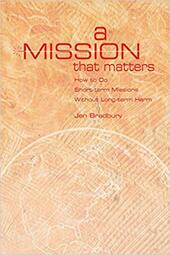The man from Food for the Hungry walked onto the stage.
“Do you believe in hope?” he yelled.
The crowd of Christian concert goers replied with raucous cheers.
That’s when he said it - The line that made me sink down in my seat and cringe.
“People elsewhere don’t have hope.”
Oh sir.
I know that sounds good. I know you can get lots of kids sponsored by selling hope.
The problem is you can't sell hope.
We don’t bring hope to children in the developing world by sponsoring them; they already have hope.
I’ve served in rural Haiti.
I’ve been to Kiziba Refugee Camp in Rwanda.
I’ve sat with women dying of AIDs in Africa.
I’ve seen poverty in Kenya.
And here’s what I’ve observed. People in the developing world may lack a lot of things: Health care, big houses, indoor plumbing, clothing, sometimes even food.
But they don’t lack hope.
Over the last decade, I’ve learned more about hope from my conversations with refugees – people who are forced to flee their homelands for fear of their lives – than I have from anyone else.
That shouldn’t surprise us. According to Paul, “Suffering produces perseverance; perseverance, character; and character, hope. And hope does not put us to shame, because God’s love has been poured out into our hearts through the Holy Spirit, who has been given to us.”
Since we in America haven’t suffered in the same way those in other parts of the world have, it’s ridiculous to think that as Americans, we can bring hope to anyone.
And when we sell child sponsorship by convincing people that we can, it’s dishonest. That’s problematic – not just for things like child sponsorship but also for things like short-term mission trips. It’s part of what gives these things a bad reputation.
As wealthy Americans – and let’s face it, by the world’s standards, those of us who live in America are wealthy – there are some things we can do.
Through quality partnerships with host organizations and communities, we can sometimes (but not always) provide developing communities with needed services.
Through ongoing relationships with host communities, we can sometimes (but not always) form genuine friendships with people in the developing world. But for those relationships to be genuine, they must be mutual. We can’t just give, we also have to receive… Which means that we have to be open to learning from those in impoverished communities. Hope is one of many things those in the developing world can teach us about.
We can also give money to organizations doing good work in developing communities so that they can tangibly meet people’s needs by providing them with food, clothing, and health care.
But that’s what child sponsorship does… And even that’s not without a dark side. Sometimes the food, clothing, and health care provided through child sponsorship takes away jobs from those within the communities.
Child sponsorship doesn’t mean that health, wealth, and prosperity flood into a community – despite the fact that that’s what the concert’s headliner said later that night.
Wealth and prosperity shouldn’t be the goals of child sponsorship. They’re far more the American dream… And when we try to export them to other parts of the world, that’s colonization.
So, what can we do?
Give… and give generously to organizations that you trust who work in partnership with community leaders to meet real needs that are identified by those community leaders.
But don’t try to turn your generosity into something else.
Be honest about what you are and aren’t providing.
You’re providing money. And that’s good and needed.
But you aren’t providing hope. People elsewhere already have hope.
Hope is rooted in Jesus. And Jesus is already at work in rural Haiti, the slums of Nairobi, and refugee camps throughout the world.
So yes, Food for the Hungry man. I believe in hope.
I believe hope is so strong – and that Jesus is so powerful – that we need not bring them anywhere.
We just need to find where they're already at work and join them.
*****************************************************

To learn more about how to participate in honest fundraising and join in Jesus' work in developing communities, order your copy of my new book, A Mission That Matters today!